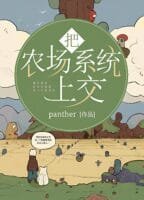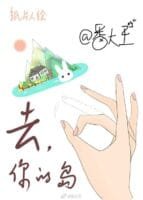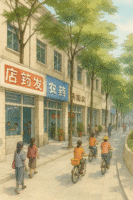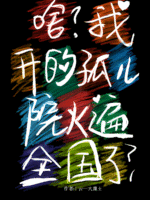Era-C147
by MarineTLChapter 147: The Leopard Is Dead? Did the Tiger Do It?
The villagers gathered here weren’t just from Hongfeng Village, but from Shimen Village as well.
Those who didn’t know Lin Heng looked at him with curiosity—whose kid was this, riding a horse up the mountain looking so impressive?
Seeing the bow and arrows on him and the dog at his feet, they were even more surprised. Was he out hunting?
“Lin Heng, are you here to pick chestnuts too?” a villager from Hongfeng Village recognized him and smiled as he asked.
Lin Heng glanced over and saw the man speaking was Liu Yong, the father-in-law of Liu Lan. Nearby were Wang Jin, the beekeeper, and several other villagers.
“Yes. Uncle Liu, what happened here?” Lin Heng asked, curious, since the group was crowded and he couldn’t see clearly.
“There’s a dead leopard here. Don’t know what killed it, but it’s been torn up beyond recognition,” Liu Yong said, pointing behind him.
“I think it was a tiger. What else could have eaten a leopard besides a tiger?”
“Couldn’t it have been another leopard? Maybe a bear did it.”
As soon as this was said, the group immediately started arguing again.
“A leopard’s dead? Eaten by a tiger?” Lin Heng was stunned. What on earth were they talking about?
He clearly remembered that the last tiger found in Qinling Mountains was in 1964, shot dead and now preserved as a specimen in the provincial library.
Since then, there hadn’t been any more tigers in Qinling. How could there suddenly be signs of a tiger now?
After a moment’s pause, he dismounted and quickly ran over.
Under a large chestnut tree, he saw the leopard’s carcass.
The leopard’s back and sides had distinctive cloud-shaped spots; its fur color was a uniform light blue to gray with large cloud-like patches on the sides.
Its ears were small, head round and plump. Now only half the body remained; the internal organs and hindquarters had vanished.
The head and remaining half-body showed clear bite marks.
Killing a clouded leopard and eating most of it was indeed incredible. Since tigers had gone extinct, the clouded leopard was the top predator in these mountains.
Only black bears or giant pandas might be stronger—but both were unlikely to prey on clouded leopards.
Could it really be a tiger?
Lin Heng’s heart tightened. If such a creature existed, it wouldn’t be good news. Hunting would require extreme caution.
There had been cases before where an animal thought extinct later reappeared. After all, the mountain was vast—impossible to search every corner.
But he also considered maybe this clouded leopard had been injured in a fight and then attacked by something else.
Still, from now on, he’d have to be extra careful when hunting in the mountains, just in case.
Looking at the leopard remains on the ground, Lin Heng turned and asked, “Does nobody want it?”
“It stinks, and there isn’t much fur left. What use is it?” Liu Yong said disdainfully.
“Yes, none of us want it. If you want it, just take it,” the villagers showed no interest.
It wasn’t valuable—what could they do with it?
“Ha, then I won’t be polite,” Lin Heng said with a smile. Although it smelled bad, there were no maggots yet, so it could still be used.
The remaining fur could be useful. He planned to keep the skin, and he’d throw the front paws and head into the water, letting fish and insects clean the meat off, then make a skeletal specimen from the bones.
He pulled out his finely forged steel dagger on the spot, enduring the smell as he carefully skinned the leopard.
Luckily, the dagger was sharp, so the process wasn’t slow. Some villagers watched briefly before scattering to collect chestnuts.
After about ten minutes, Lin Heng finished taking off the leopard’s skin. To get as much as possible, he even skinned the head clean.
“Not bad, big enough for a pair of gloves and a hat,” Lin Heng said, smiling with satisfaction.
The skin measured about fifty square centimeters. On the carcass, it didn’t look like much, but it was quite a lot.
After removing the skin, Lin Heng tossed the rotting meat into a nearby water hole and weighed it down with stones.
In about a month, only the bones would be left.
Without dermestid beetles, this was the best method—he’d once retrieved a complete mouse skeleton from a creek this way.
He scraped the rotten meat off the leopard skin, packed it into the woven bag, sealed it tight—no smell would escape.
Back home, he would process it into a beautiful leopard pelt. Once tanned, his wife could make it into gloves.
“We’re leaving.”
With everything done, Lin Heng swung back onto the horse and continued up the mountain.
His parents should be near the summit. After searching, they found them under a large chestnut tree.
“Mom, Dad, how much have you collected?” Lin Heng led the horse over; the forest wasn’t rideable.
It wasn’t that the horse couldn’t walk—it was that he couldn’t stand being hit in the face by branches every few steps.
Alongside Lin Heng’s parents and older brother were his second nephew, Lin Tao, who had come up with his father.
“We’ve picked about seventy or eighty jin so far. There are plenty on this chestnut tree, and we’re still picking,” Lin Heng’s father said with a smile, pointing to the woven bags nearby.
“Not bad,” Lin Heng said. It was only 10:30 a.m., and that was a good haul.
“Did you see that dead leopard on your way up? Don’t know what bit and ate it, only left that bit.”
Lin Yue, picking chestnuts in the tree, asked.
“Not only did I see it, I skinned it too,” Lin Heng replied with a smile.
“It still stinks, is it useful?” Lin Heng’s mother cast a doubtful look.
“Of course. The meat stinks, not the fur,” Lin Heng said.
“Everyone, move aside! I’m going to shake the tree now!” Lin Yue called from the tree, having climbed into position and wearing a straw hat.
Lin Heng and the others hurried away. Usually, wild chestnut trees weren’t shaken—they were everywhere and easy to gather from the ground.
But cultivated chestnut trees were fewer, so when one was found, they tried to pick as much as possible.
As the branches shook, chestnuts fell with a thudding sound like rain. Most of what dropped were chestnuts, but occasionally some burrs came down too.
Taking advantage of the moment, Lin Heng went over to gather some horse feed for Hongzao—mainly a mix of leaves from certain trees and the leaves of Guotiao vine.
Once the shaking was mostly done, he grabbed a bag and started picking chestnuts from the ground—here a few, there a few—almost like foraging for mushrooms, which was quite enjoyable.
“Awwooo~”
Xiongba wagged its tail and even picked up a chestnut to hand to Lin Heng, joining in the fun.
“Don’t pick those up, go look for mushrooms or prey,” Lin Heng patted its head.
This guy only picked up slobbery things, totally inedible.
“Woof~”
Sensing Lin Heng’s disdain, Xiongba barked in protest and ran off to play elsewhere.
Lin Heng quietly continued collecting chestnuts. Once he finished this tree, he’d move on to the next.
By now, the mountain was filled with people gathering chestnuts. Hunting was pretty much out of the question; the bow and arrows were just in case.
Plus, on the way back through Red Maple Mountain, they’d give the local rabbits a good scare.
Before he knew it, it was already 1 p.m. Lin Heng had collected over thirty jin of chestnuts—about ten jin of large chestnuts and twenty jin of hairy chestnuts.
Besides encountering a few people, he hadn’t spotted any game. The animals seemed to have vanished.
After all, the whole chestnut mountain was crawling with people; any wildlife would have been scared away and wouldn’t dare show itself.
Lin Heng’s father checked the time and said, “Let’s find a streamside spot to eat.”
“Alright!” Lin Heng went back to lead the horse while the others carried their chestnut bags toward the stream.
Near the stream, the trees were much shorter and there was plenty of grass. Lin Heng let Hongzao graze while he and his parents settled in the shade to eat.
“What are you eating?” Lin Heng’s mother opened a bag containing steamed corn buns, sticky rice cakes, and white flour buns.
“I’ll have a sticky rice cake,” Lin Heng said, dipping it into some spicy fermented tofu. It tasted pretty good.
There were quite a few people eating by the stream, all with their packed food. The distance from here to the foot of the mountain was three or four kilometers, not to mention all the way home.
“Lin Heng, want some roasted corn?” someone called out from below.
Looking down, Lin Heng saw Yang Zhaotao, Li Caifeng, and a few other villagers about his age.
They had built a fire and were roasting corn and sticky rice cakes.
“Thanks,” Lin Heng said without hesitation, walking over to grab a roasted ear of corn.
“It’s no big deal. No need to be polite,” Yang Zhaotao laughed.
“Carrying it up here isn’t easy either,” Lin Heng smiled, sitting down to eat corn and chat.
Roasted corn’s smoky aroma was much more enticing than the sweet flavor of boiled corn. Yang Zhaotao was good at roasting it just right—golden brown, not burnt or charred.
Eating corn and listening to their bawdy jokes was quite entertaining. There wasn’t much to do for fun in the countryside, so when they got together, some crude humor was inevitable.
But Lin Heng wasn’t very interested and didn’t join in.
Some of the women couldn’t stand the jokes and started playing pranks—sprinkling water, throwing mud—getting mischievous.
Yang Zhaotao took a bite of a sticky rice cake and laughed, “Lin Heng, when will you dig the fish pond again?”
“Have to wait until the soybeans are harvested, around late October,” Lin Heng replied casually.
“Don’t leave me out next time,” Yang Zhaotao joked.
“Count me in too,” someone nearby added.
“No problem. Lots of people want in this time. I’ll send out the notice when it’s time to sign up,” Lin Heng said with a smile.
He knew many villagers wanted to help dig the fish pond—an opportunity to earn money right in their own village—and the work was popular.
After finishing the corn, Lin Heng grabbed a few chestnuts, sliced a small slit in each, and threw them into the fire to roast.
Even with the slit, heating them quickly caused muffled popping sounds as the shells split. This made it easy to peel off both the outer shell and the inner skin, leaving the golden chestnut meat.
The soft, sweet chestnuts were delicious. After eating a big handful, Lin Heng finally felt satisfied.
He thanked them and ran off to pick more chestnuts.
He spent the afternoon gathering chestnuts near the stream, where there were plenty. Chestnuts were endless—land that had already been picked over still yielded a fair amount, from those dropped by trees or missed by others.
Not long after, Lin Heng spotted a wild lily growing beneath some trees. He asked his mother for a small hoe to dig it up.
These lilies on the hillside didn’t grow deep; two swings of the hoe dug it out easily. The bulbs were small, only about three or four liang in weight.
“Awwooo!” Xiongba came over, sniffing curiously.
Lin Heng smiled, broke off a piece, and fed it to the dog.
“Gawk gawk!”
Xiongba took a couple of bites, then spat it out and glared fiercely at his owner, thinking Lin Heng was even more dog-like than himself.
The dog then ran to the stream to drink and rinse its mouth, nearly disgusted to death.
“Ha ha.”
Lin Heng laughed, having teased Xiongba. After looking around some more, he found two more lilies.
These plants were very bitter if left untreated after digging, especially wild lilies with white flowers.
As Lin Heng was digging, his father suddenly called out, “Hey, this yam vine is really thick. Lin Heng, bring me the hoe.”
“Wait a sec.” Lin Heng finished digging up his lilies with two swings, then took the hoe over.
“Look at this yam vine—thick as a pinky finger,” Lin Heng’s father said, laughing as he held the vine.
The yam vine was dark red with vertical stripes; its leaves were triangular and felt thick.
Normally, yam vines as thick as a regular data cable could yield three or four jin of yams. A vine this thick could easily yield over ten jin.
“And this is growing on a slope, which makes it easier to dig. I’ll see if I can get it all out,” Lin Heng’s father said, taking the hoe.
“Go ahead, I’ll help you,” Lin Heng nodded.
At this time of year, yams could still grow for another month or two. The best time to dig was in the tenth lunar month—December on the solar calendar.
But digging early was fine, just meant a smaller harvest.
Lin Heng was “helping,” but really he just stood by watching while his father kept digging.
After about thirty centimeters, they finally spotted the main yam—a thick one, roughly the size of an adult’s forearm. Deeper down, it might even be as thick as an adult’s calf.
“This yam is really huge. Once we stew it with pork leg, it’ll be delicious,” Lin Heng’s father grinned as he unearthed part of it.
Lin Heng was pleasantly surprised too: “Yeah, it’s not branched at all. A really good yam.”
Many yams look thick from their vines, but when you dig them up, they split into a whole bunch of smaller roots that are basically useless.
If they split into two or three, that’s still manageable—just a bit smaller—but the worst is when they split into five or six tiny ones, growing tangled among rocks, crushed and deformed. Digging those up is just a waste of effort.
After a while, Lin Heng’s father handed the hoe over to him. But within a couple of swings, Lin Heng accidentally nicked the yam’s skin, revealing the white flesh inside.
“I’ll do it. You just watch,” his father said, taking the hoe back with a resigned sigh.
His perfectionist streak couldn’t stand the thought of damaging the yam.
Lin Heng could only watch. His dad was patient, digging carefully for a full hour and a half. He ended up making a big hole and managed to extract the entire yam intact.
“This must weigh over ten jin,” Lin Heng’s father chuckled.
“Awesome!” Lin Heng gave a thumbs-up. Even if he were reborn, he knew he couldn’t do that kind of work.
The yam was over a meter long, as thick as an adult’s calf—perfectly intact.
Lin Heng’s father cut it into three sections and put them in a bag, then sat down to rest, clearly exhausted.
Lin Heng handed his father some water he hadn’t drunk, then took the hoe and continued picking chestnuts and searching for wild lilies.
During this time, he also found some Schisandra berries and August melons, and didn’t pass them up—he picked them all. The ripe Schisandra were a deep red, tasting tart and sweet, very pleasant.
That afternoon, everyone gathered fewer chestnuts. By the time they regrouped around six o’clock, Lin Heng had collected another thirty jin, bringing his total for the day to about sixty jin.
His parents together had picked a hundred jin, adding to the morning’s haul for just over two hundred jin in total.
His older brother, Lin Yue, had roughly a hundred jin combined from morning and afternoon.
People in the countryside often carry heavy loads and have a pretty good sense of estimating weights.
“Let’s go down the mountain,” Lin Heng said, carrying his gear and leading Hongzao ahead.
The downhill path wasn’t suitable for riding, but walking wasn’t difficult.
Once on the main road, they stashed the chestnuts by the horses, instantly making the load much lighter.
Approaching Red Maple Mountain, Lin Heng handed the horse over to his father, took up his bow and arrows, and with Xiongba set off on a side trail toward the mountain.
He planned to see if there were any wild rabbits around to give them a scare.
Between six and seven in the evening was prime grazing time for those critters.
One man and one dog quietly arrived at the edge of the soybean field beneath Red Maple Mountain.
Just stepping up to the field, they spotted evidence of chewed soybeans—dry, three-toothed bite marks typical of rabbits.
“Nothing here?”
Lin Heng was a bit puzzled. After walking around several acres of soybean fields, they found no sign of rabbits.
Resigned, Lin Heng went to check the fish ponds. The water quality was stable now, and plenty of grass had grown on the pond’s slopes.
That was good—ponds for raising shrimp needed lots of grass. Without it, shrimp don’t thrive.
After thinking it over, Lin Heng decided to put the grass carp fingerlings from home into the first fish pond in a few days.
Normally, one mu of pond only supports about a thousand fish, but he had seven or eight thousand fingerlings surviving. Logically, he’d need seven or eight ponds.
Since the fish were still small, he could keep them all together for now and separate them into ponds once they grew to half a jin each next year.
“But I’ll need to pick a good day for that,” Lin Heng muttered to himself as he turned away.
But he wasn’t the type to return empty-handed. He picked some pink hibiscus and golden chrysanthemums growing nearby, bundling them into a bouquet to take along.
Just as he reached the main road, a gunshot rang out from the mountain top.
He glanced up but didn’t pay much attention. As autumn deepened, many hunters were beginning to go up the mountain.
He planned to wait until it got colder and the leaves started falling before organizing a long hunting trip to Taibai Mountain.
Seeing Lin Heng return, his father said, “I just heard someone shooting at Red Maple Mountain. The rabbits probably ran off.”
“Yeah, we’ll have to wait until tomorrow morning,” Lin Heng shrugged. He guessed that was the case; otherwise, it was impossible not to see a single rabbit.
Back home, Lin Heng unloaded his chestnuts from the horse and brought them inside. His father would feed the horse and put it in the stable later.
“Lin Heng, aren’t you taking some of that yam home to eat?” his father asked.
“Leave it for you guys. Once I catch a couple of wild chickens, we’ll stew it together,” Lin Heng said with a smile.
Carrying the chestnuts and bouquet, Lin Heng knocked on the door.
“Here you go.”
When Xiulan opened the door, Lin Heng smiled as he handed over the flowers and the small bag containing the August melons and Schisandra berries.
Xiulan blinked, a gentle tenderness in her eyes, and smiled, “You had a good harvest today—so many chestnuts.”
“Of course, not just chestnuts—there were lilies and August melons, some Schisandra too, and even half a leopard skin.”
Lin Heng put the items on the table and stretched his back.
“Dad, I want to eat this,” Xiaoxia said, pointing to the August melons.
“You can have these,” Xiulan handed her a string of Schisandra berries instead. Xiaoxia wouldn’t like the melons’ seeds, and she shouldn’t eat too much.
“Leopard skin?” Xiulan’s eyes widened. “Did you shoot a leopard this afternoon?”
“No, I found it. There was a dead leopard on the ground.”
Lin Heng explained the whole story to his wife.
“I thought so—it startled me. I was worried you actually shot a leopard,” Xiulan said, patting her chest.
Then she added, “Do you think there really might be a tiger? That would be so dangerous.”
“I don’t think so,” Lin Heng shook his head. After thinking it over, he didn’t believe it was a tiger.
“You should still be careful. Just in case there really is one, better to be prepared,” Xiulan said. Tigers were a frightening thought.
“Got it. I’ll take care of the leopard skin,” Lin Heng nodded.
Xiulan smelled the fresh flowers, took a blue-and-white porcelain vase that Lin Heng had bought, filled it with water, and arranged the flowers on top of the big cabinet. Smiling warmly, she then went to the kitchen to cook.
Lin Heng carried the smelly leopard skin outside. First, he made a frame to stretch it out, then carefully scraped off any remaining fat and bits of meat with a bamboo tool, making sure it was thoroughly cleaned.
After that, he took some quicklime, poured it into a wooden basin, added water to make a lime solution, and soaked the smelly leopard skin in it, pressing it down with a stone.
This step required soaking for at least one whole night.
When he finished, Xiulan had already prepared dinner—steamed white buns, three stir-fried dishes, and a soup.
While eating, Xiulan said, “My sister-in-law asked me why our chickens lay so many eggs. I told her the feeding method you taught me.”
“Well, just tell her. It’s nothing special,” Lin Heng replied, taking big bites of his bun.
He sliced open a bun, spread some spicy fermented tofu on it, then filled it with stir-fried preserved pork and pickled radish strips. The flavors were so good he barely wanted to talk.
Lin Heng ate four buns straight before finally stopping, feeling full.
Only then did he have time to chat with his wife, telling her about the day’s events in the forest.
Xiulan shared her own day at home, which was mostly uneventful—the only highlight being the flowers Lin Heng had brought back.
After dinner, they followed their usual routine: soothing the child to sleep, then going to bed themselves.
Early the next morning, Lin Heng got up and checked on the leopard skin.
He added some hot water, used his hands to thoroughly clean off the grease and dirt, then rinsed it clean. The foul smell was completely gone.
At this point, the first step of tanning the hide was done.
Xiulan mixed alum, salt, and water to make the tanning solution. In the countryside, tanning hides to make clothes was a long-standing tradition, so the proportions were well known.
She put the leopard skin into the wooden basin, added some of the tanning solution, and soaked it. Over the next seven days, they would gradually increase the concentration daily. After a week, the skin would be tanned, ready to be dried, softened, and made into clothing, hats, or other items.
“Wife, you make breakfast. I’ll take Xiongba to Red Maple Mountain for a look,” Lin Heng said after finishing with the leopard skin.
“Okay,” Xiulan agreed.
Lin Heng took Xiongba to Red Maple Mountain. His parents stayed home today, busy harvesting corn, and didn’t go chestnut picking.
Just as he reached Red Maple Mountain, before even getting near the soybean fields, Lin Heng made an unexpected discovery and quickly crouched down.
Finding something like this here was such a surprise that it took a moment for him to calm down.
(The End of Chapter)










0 Comments